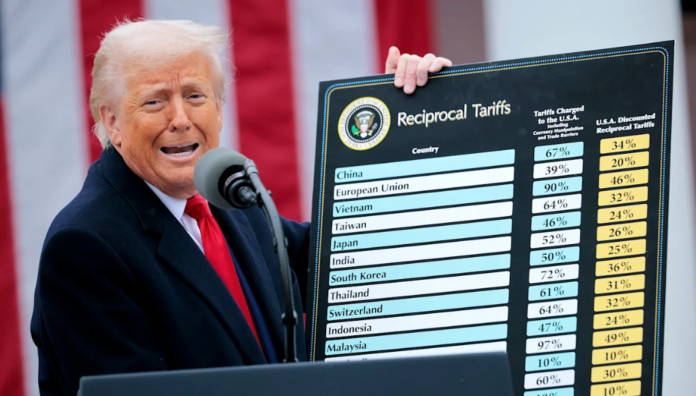The Manufacturers Association of Nigeria (MAN) has raised concerns over the newly imposed 14 percent tariff by the United States on imported products, warning that the move could disrupt Nigeria’s trade flows and manufacturing sector. The Director-General of MAN, Segun Ajayi-Kadir, shared the warning in a statement issued in Lagos, highlighting that the US is one of Nigeria’s top trading partners, accounting for about 7 percent of the country’s non-oil exports.
Ajayi-Kadir said the timing of the tariff is troubling, given that Nigeria is preparing a N55 trillion budget while also dealing with falling global crude oil prices. He explained that the country’s manufacturing sector, which made up 8.64 percent of the GDP in 2024, is particularly vulnerable to changes in trade policies like this. According to him, the new US tariff weakens the competitiveness of Nigerian-made products in the American market.
He pointed out that several industries—ranging from agro-processing and pharmaceuticals to chemicals, basic metals, non-metallic minerals, and other light manufacturing—depend heavily on access to the US market. With American buyers now facing higher costs, demand for Nigerian exports is likely to drop.
Beyond lost revenue, Ajayi-Kadir noted that the new tariffs could discourage investment in value-added manufacturing. Over the last ten years, local manufacturers have worked hard to move beyond raw exports to more processed and finished goods. However, the increased cost of entering the US market due to the new tariffs threatens the profitability of these ventures, making it more attractive for businesses to fall back on exporting raw materials. This, he warned, runs counter to Nigeria’s industrialization goals and weakens efforts to diversify exports under agreements like the African Continental Free Trade Agreement (AfCFTA).
Ajayi-Kadir also flagged serious consequences for employment. As export revenues shrink, some companies may cut production or lay off workers to stay afloat. He stressed that the broader Nigerian economy could suffer as well, especially with the country’s external sector already on shaky ground. A sharp decline in exports to the US could eliminate the trade surplus Nigeria currently enjoys and even push it into a deficit.
He expressed concern over the possibility that Nigeria might face pressure to lower its own tariffs on US imports in a bid to maintain trade balance. While this might be framed as a move toward fair trade, Ajayi-Kadir cautioned that it could actually lead to an influx of subsidised US goods, hurting local producers.
Despite recent progress in self-sufficiency and efforts to diversify away from oil, Ajayi-Kadir warned that bending to such external pressure could undo much of that progress. He also highlighted that Nigeria lacks the institutional muscle needed for high-level trade negotiations, unlike countries with more developed economic and legal systems. This lack of capacity, he said, leaves Nigeria exposed and at a disadvantage in global trade dealings.

